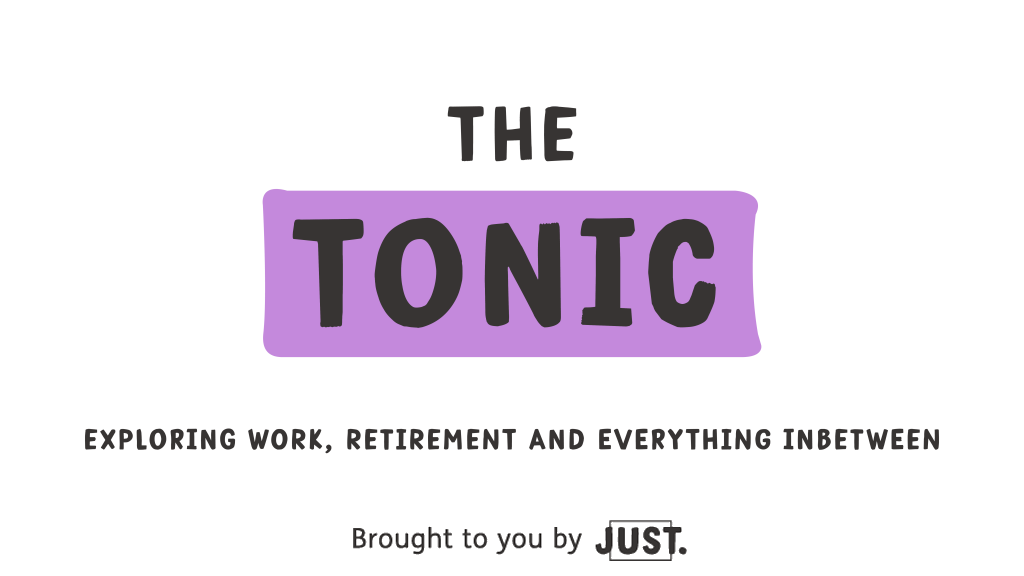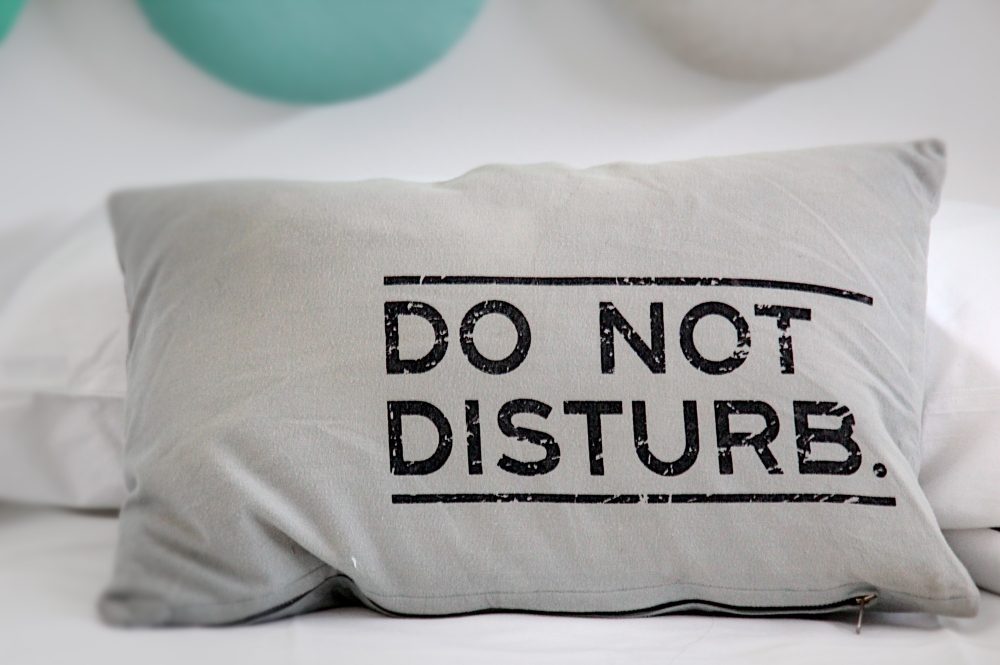I’m awake again, for the sixth time in the same night, incredulous at the noises going on next to me in bed. My husband is lying on his back, making a noise that sounds like a combination of a kitchen waste disposal unit and an angry dog chewing its own leg off. And with each snore he’s struggling so hard to get the air in, his body – and the bed – is actually shaking.
I’m so tired I could weep – it’s been night after night. Focusing every fibre of my being on not smothering him with a pillow, I gently nudge him to try and turn him on to his side, facing away from me, and this in turn wakes him up, which makes him cross with me. And he doesn’t want to lie on his side, and drifts off again, on his back, making that noise.
Snoring ends relationships, causes arguments; even violence and murder.
At this point the urge to kill is so strong I end up decamping to the bed in the spare room, in case I stab him with my nail scissors, and in the morning I am aching and tired and grumpy and I pretty much hate him. Particularly as he seems to have had a good night’s sleep. I know it’s not his fault, but…
Does this sound familiar? It’s not really a laughing matter if you’re living with it. There are hundreds of thousands of people whose sleep is disturbed every night by it. It ends relationships, and causes arguments; even violence and murder. A few years ago a 44 year old woman, Dawn Weiser, actually stabbed her husband with a butcher’s knife because of his snoring – and a quick look online shows that it’s not an isolated case. People are being killed for their snoring.
The bad news is that it can’t actually be ‘cured’. But the good news is that there are things you can do about it. There’s also a difference between snoring and Obstructive Sleep Apnoea (OSA) and if it’s the latter you’re dealing with, there are definitely options open to help.
So what exactly is snoring?
Snoring is basically vibrations of the soft palate and other tissue in the mouth, nose and throat, caused by turbulence inside the airway during breathing, and that turbulence is caused by a partial blockage. It usually only occurs during sleep, or is worse when we are asleep, because our muscle tone is more relaxed. As the throat muscles relax during sleep, the airways become blocked. Additional factors such as being overweight, drinking alcohol, being overtired or simply getting older can make it worse.
What’s the difference between that and sleep apnoea?
Sleep apnoea is where your airways actually close completely when you’re sleeping, cutting off the air you breathe. It can be 10 seconds or more where no air is drawn in – ultimately your brain wakes you up and you start to breathe again, but it can happen repeatedly through the night and leave sufferers tired and even depressed as their sleep is disturbed.
Is it just men who snore?
No ladies, I’m afraid you snore too. Studies show that although snoring is more prevalent in men, the incidence of women snorers is higher than was once thought. This seems likely to be because women are less liable to admit to it (it’s not very ladylike after all), or that more men have been referred for sleep studies and research. It’s also possible that men just sleep through their female partner’s snoring as it’s not so loud, or that men are louder and women are lighter sleepers. Anyhow, it’s now estimated that the ratio of men to women is around 2:1. And interestingly, women are much more likely to snore once they pass the menopause.
Can snoring be cured?
In a word, no, not really; but you can improve matters. If you’re an apnoea sufferer there are more options available, such as breathing apparatus that comes with a mask that pretty much pushes air into you as you sleep. It’s not for everyone, but the CPAP (continuous positive airway pressure) mask and kit has proved amazing for a lot of people – and there are other various mouthpieces that apparently can really help too, although for many of them, reviews are varied.
With snoring there are a number of contributory factors that make it worse, such as drinking alcohol, being overweight, taking medication and so on. The British Snoring & Sleep Apnoea Association have a really useful online test you can take which very simply assesses the potential causes of your snoring and makes some suggestions to reduce it.
Some natural remedies that can help
1. Have a steam
Congestion can make snoring worse, so a good steam can help clear those passages. Use something like tea tree or eucalyptus oil to make it really effective.
2. Peppermint
Peppermint contains anti-inflammatory compounds. Try peppermint oil on your pillow (mind your eyes) or try gargling with it in water (do not swallow!).
3. Nettle
Nettles have anti-inflammatory compounds which could help with swelling so try nettle tea. Add dried nettles to boiling water and infuse for ten minutes and strain – adding honey if you’d like it sweeter.
4. Chamomile
Same as nettles here – plus chamomile is widely recognised as helping with sleep, as well as being an anti-inflammatory.
5. Lose weight
Sorry – if you’re overweight it will definitely make your snoring worse. So why not do yourself an all-round favour and up that healthy living!?
6. Throat and tongue exercises
Like everything muscular, you can improve the tone of your throat muscles, making them fitter and less likely to relax so much and cause snoring. Singing loudly can help, or try exercises. Stick your tongue out of your mouth as straight and far as possible, and repeat two or three times every day, or try touching your chin or your nose.
7. Clear the air
Humidifiers or vaporisers have been known to help by adding moisture to the air. Equally, keeping the bedroom dust-free will help.
8. Honey
Ah – lovely honey, one of nature’s most soothing anti-inflammatory. Try a teaspoon before bed, or add to one of the teas above.
9. Keep off the booze
Both alcohol and sedatives will make snoring worse. Try reducing these before bedtime and if you’re using sleeping pills, investigate alternative forms of relaxation, such as meditation before bed.
Useful Links
- For more information and loads of other tips British Snoring & Sleep Apnoea Association http://www.britishsnoring.co.uk/





Add comment